ICOMOS New Zealand is very pleased to announce the five recipients of our ICOMOS New Zealand GA2023 Scholarships to attend the ICOMOS GA2023 General Assembly and Scientific Symposium in Sydney from 30 August to 9 September 2023.
The ICOMOS New Zealand GA2023 Scholars are: Emily Campbell, India Logan-Riley, Te Kerekere Roycroft, Rohan Sadhu and Ava Wright. Read on to find out more about the scholarships and the inspiring recipients.
ICOMOS New Zealand, with the generous help of our sponsors Dulux, Manatū Taonga Ministry for Culture and Heritage and Te Kāhui Whaihanga New Zealand Institute of Architects, established five scholarships of $2,000 to assist ICOMOS New Zealand members, and those who apply for membership as a condition of the scholarship, to attend the ICOMOS GA2023 General Assembly and Scientific Symposium. This international conference is to be held for the first time in our ‘backyard’ – Sydney, Australia.
Emily Campbell (Dulux scholar)
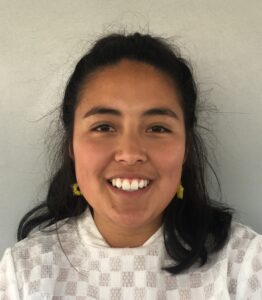
My experience in the broader cultural and heritage sector has largely been through my current role as the Tikanga Māori Planner at Hutt City Council. In line with this, a core part of my day to day includes working on the full District Plan review. I am currently leading the heritage review chapters, which encompass both built heritage (predominately post-settlement items) and Māori heritage (predominantly pre-settlement sites). The latter includes engaging with council’s Mana Whenua partners to understand the historical and cultural significance of these sites and their aspirations for how these are managed.
For me, the benefits in attending the ICOMOS GA are tenfold for this work going forward. Our purpose at Hutt City Council is ‘to make Lower Hutt a city where everyone thrives’. A key aspect of this is preserving and celebrating the sites, places and spaces that the community value for their historical, physical and cultural significance. The preservation of Indigenous heritage associated with other nations, such as our hosts the Aboriginal and Torres Strait Islander peoples in Australia, additionally has a lot of learnings for Aotearoa for how we do this effectively and in culturally appropriate ways.
India Logan-Riley (Manatū Taonga Ministry for Culture and Heritage scholar)
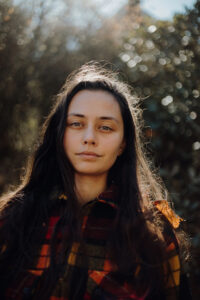
My name is India Miro Logan-Riley (they/them) and I am a mokopuna of Ngāti Kahungunu, Rongomaiwahine and Rangitāne. I was raised in the Heretaunga Plains, a bountiful place circled by mountains and the rising Pacific Ocean.
My experience in the heritage space started with volunteering and working at my local museum and led me to studying archaeology. At the same time, my community was experiencing the escalating impacts of climate change which was exacerbating the legacies of colonisation on our mātauranga, culture and tino rangatiratanga.
As the climate justice organiser at ActionStation, a multi-issue campaigning organisation in Aotearoa (New Zealand), everything that I do is driven by an urge to protect the stories, culture, wāhi tapu and communities that I come from. I also work as a community researcher for Generation Kāinga, a research project uplifting the aspirations that young Māori have for diverse housing that takes into account heritage, resilience and climate change.
In attending ICOMOS GA 2023 I am interested in broadening and deepening my understanding of ways to navigate and respond to the complexities and risks that climate change brings to Indigenous peoples’ heritage, culture and tino rangatiratanga. I am also looking forward to connecting with others working at this intersection and bringing these learnings back home.
Te Kerekere Roycroft
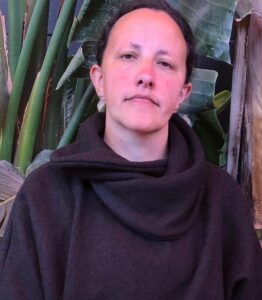
Ko Ngāpuhi-nui-tonu te iwi;
Ko Ngāti Korokoro, Ko Ngāti Whārara, Ko Te Poukā, Ko Te Mahurehure, Ko Ngāi Tawake ki te tua whenua ngā hapū;
Ko Te Kerekere Roycroft toku ingoa.
I am a Doctoral Candidate at Waipapa Taumata Rau, University of Auckland, my current research centres around whānau relationships with tūrangawaewae in urban contexts. A relationship with tūrangawaewae can often pervade questions of individual identity, agency and reliance/attachment to place. The layering of experience and perception collectivises through whānau and whakapapa relationships into a hybridity between ancestral and contemporary conceptions of what home, tūrangawaewae and ūkaipō mean in daily/practical scales, where solutions are often reconciled through the links between people, whānau, day-to-day needs and aspirations. This research kaupapa shares commonality with my Masters research, which sought to enhance identity and place connection by reacquainting whānau with their ancestral rohe through the means of a mapping platform; establishing a whānau based resource that could both preserve and orientate names, stories and knowledge for current and future generations.
Through my attendance at the General Assembly and Scientific Symposium, I will further explore indigenous concepts of resilience and the importance of relationships within whānau, whakapapa and whenua in inherited generational succession.
Rohan Sadhu (Te Kāhui Whaihanga New Zealand Institute of Architects scholar)
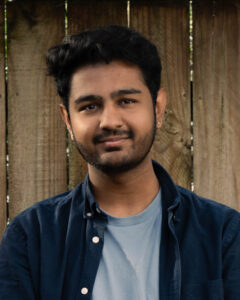
My name is Rohan, and I am a Master of Architecture student at Te Pūkenga Unitec School of Architecture. Currently pursuing my master’s thesis under the supervision of Dr Renata Jadresin-Milic, I am undertaking a research project on conserving heritage in India. I strongly believe that architecture is one of the most powerful forces in our communities; a time-capsule of our cultures.
My research question aims to explore how contemporary architectural development can enhance a heritage site, while redefining the understanding of a cultural pilgrimage in our modern world. Additionally, I have worked alongside Tāmaki-Makaurau-based-firm ARCLAB NZ for over two years now, where I honed my skills in the digitalisation and as-built documentation of residential, commercial, and heritage architecture across Aotearoa.
I am excited to attend the ICOMOS GA23 to gain a deeper understanding of global trends for conservation and learn about ICOMOS’ international work, which has already directly impacted the direction of my project. In the future, I am eager to continue my studies in heritage and culture, and I aim to use my knowledge to help rejuvenate heritage and preserve cultural identity globally.
Ava Wright
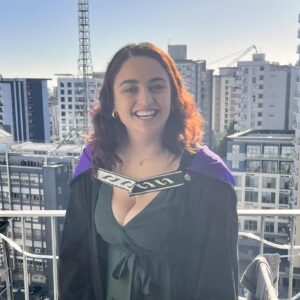
Kia ora, Ko Ikurangi te Maunga. Ko Takitumu te waka. I whānau mai au Tāmaki Makaurau. No Kuki Airani āhau. Engari, Kei Manurewa mātou e noho ana. Ko Ava Roimata Wright toku ingoa.
Phil Wihongi created the Māori design (He Maunga He Tangata) internship between Auckland Council, Isthmus, and Unitec to support Māori and Pacifica people through Masters studies in Landscape Architecture or Architecture. I’ve been fortunate to start in this position, currently working under Lisa Dunshea.
The kaupapa of my Masters research is grounded in the recent flooding issues from heavy rainfalls in Auckland and the impacts of historical and current colonisation on the sense of belonging in Māori and Pacific communities. Unitec has paired me with Diane Menzies and Matthew Bradbury as supervisors for this work. My research question aims to answer the following: How can we use mātauranga Māori to guide our response to climate change issues and re-establishing identity in coastal communities?
The ICOMOS General Assembly 2023 will allow me to network and share learnings with other professionals worldwide and learn from some leading professionals. The supporting symposia will also assist me in guiding my Masters research and building my skills in cultural heritage and climate change.
